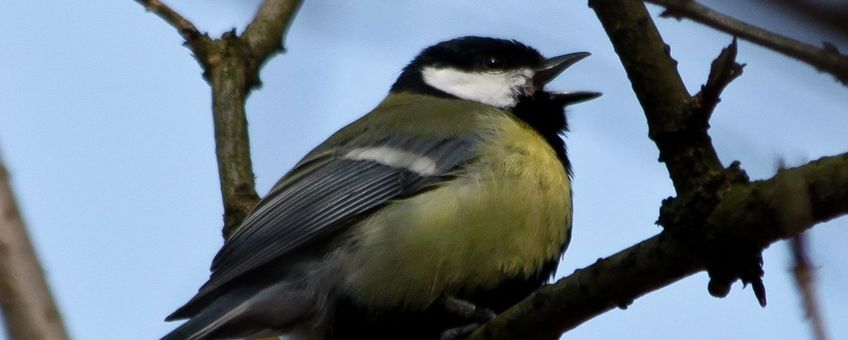
Strong singers attract females and keep males at a distance
Wageningen UniversityWhy do birds sing? Do they try to defend their territory, attract a mate, or try to impress a girl on the side? For certain bird species, it seems to be all of the above. A new study shows that both males and females react when overhearing a male neighbour sing back to an intruder. When a challenged male sang stronger, neighbouring females came closer, but males stayed further away.
The researchers used an automatic tracking system to keep track of 44 territorial great tits, both males and females. Something which is quite unique, since until now it has been very difficult to follow the whereabouts of several animals at the same time. The birds got fitted with miniature backpacks and over 150 receivers in the forest logged their presence. After a few weeks these transmitters would fall off or were removed by the researchers.

During the time the birds were carrying the transmitters, male great tits got tricked into believing that another male was invading their territory. The researchers played songs of an unfamiliar male great tit within the territory of a tagged male. In response the tagged male would often come close and sing back. How strongly a male responded, varied between the different males. Some would try to overlap the intruder and sang many songs, while others would be almost silent.
"If there is one thing a male great tit really dislikes, it's being interrupted while singing", says Dr Lysanne Snijders. "In many bird species, vocal overlapping is regarded as winning the song battle."
One hypothesis of why females and males would respond to the strength of a vocal signal, such as a bird's song, is that it gives interesting information about the singer. Possibly, a strong vocal responder is a male in very good condition and thus attractive for females, but maybe also a bit dangerous for other males to come too close to. Indeed, male great tits that vocally responded stronger were also older and in better body condition. However, strong 'attractive' singers, did not associate with more females, directly after the intrusion. Thus the question "Why do birds sing?", still needs some further investigation.
This study was published Open Access in the scientific journal Ecology and Evolution.
Text: Lysanne Snijders, Wageningen University & Research, NIOO-KNAW
Photos: Joris Diehl; Lysanne Snijders
